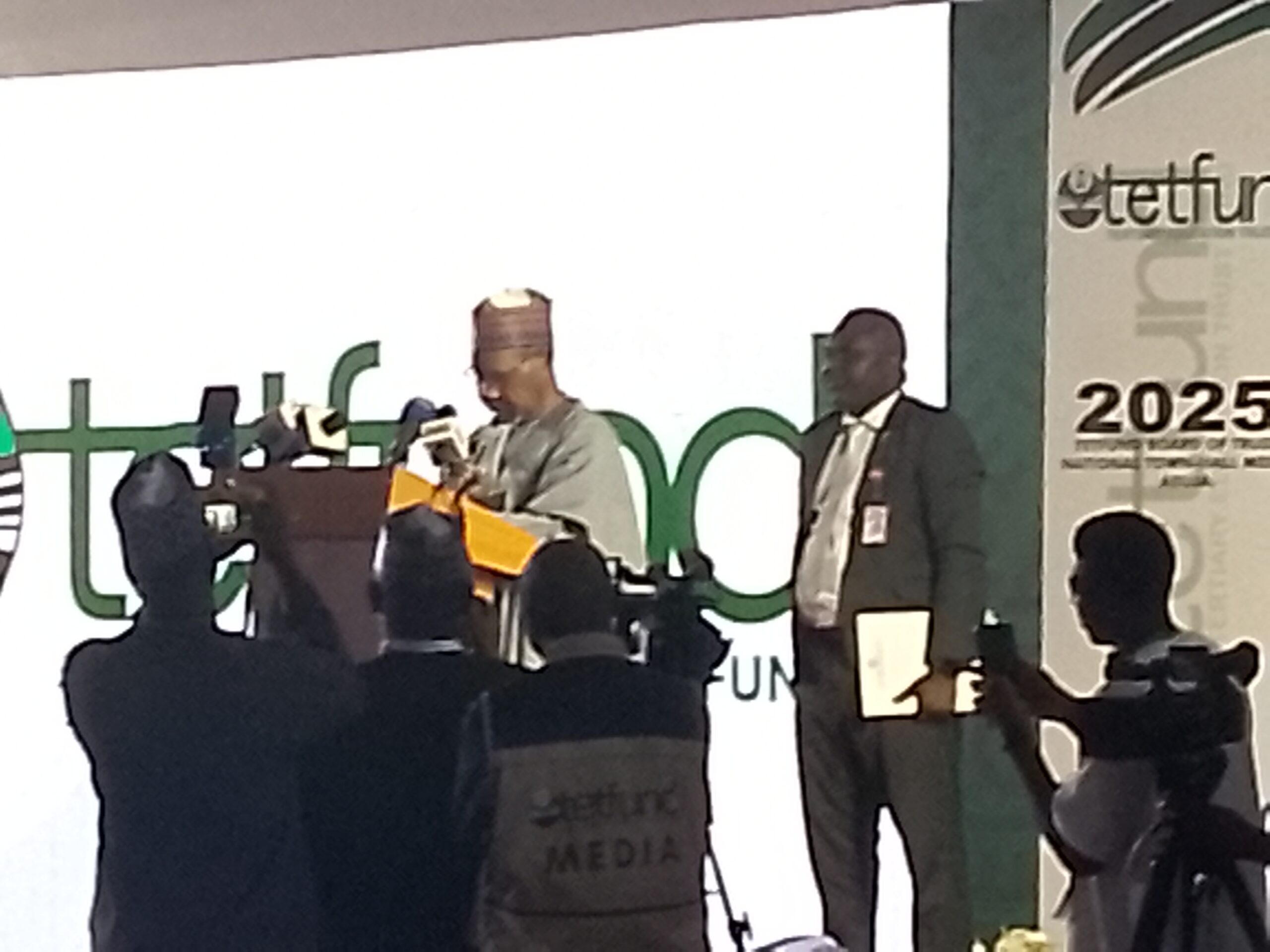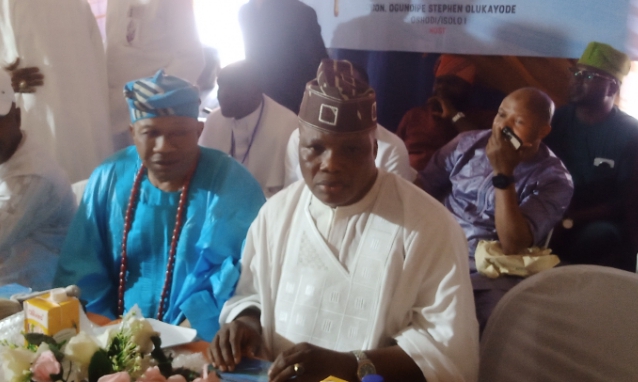
By Fatima Saka
The Chairman, Board of Trustees, Tertiary Education Trust Fund (TETFund), Rt. Hon. Aminu Bello Masari, CFR, has declared a new era of transparency, innovation, and accountability in Nigeria’s tertiary educational sectors.
Speaking at the 2025 National Town Hall Meeting of TETFund in Abuja, on Wednesday, the first in the Fund’s history, Masari unveiled sweeping reforms aimed at transforming tertiary institutions into engines of national development, innovation, and productivity.
The event marked the culmination of a nationwide stakeholder engagement initiative, following zonal town hall meetings across Nigeria’s six geopolitical zones. Masari described the meeting as a “strategic platform for dialogue, accountability, and collaboration,” designed to deepen public trust and ensure that TETFund’s interventions align with the aspirations of Nigerians and the demands of a changing global order.
“This Town Hall Meeting represents a significant milestone in our collective journey toward building a more transparent, inclusive, and responsive tertiary education system,” Masari said. “It reaffirms our commitment to accountability, innovation, and service to the Nigerian people.”
Speaking on Renewed Hope Guiding Principle, Masari commended President Bola Ahmed Tinubu for his “Renewed Hope Agenda,” which he said provided the policy foundation for ongoing reforms in tertiary education. He also lauded the Honourable Minister of Education, Dr. Tunji Alausa, and the Minister of State for Education, Professor Suwaiba Said Ahmad, for their steadfast support and collaboration with TETFund.
He outlined the Board’s reform agenda, anchored on three key pillars:
1. Transforming tertiary education into a driver of innovation and productivity.
2. Strengthening accountability, transparency, and impact measurement.
3. Expanding frontiers of research, technology, and entrepreneurship.
“Our goal is to ensure that TETFund interventions translate directly into tangible improvements in the quality of teaching, learning, and research, while making Nigerian graduates more competitive globally,” he stated.
Highlighting TETFund’s achievements in academic staff development, Masari noted that thousands of lecturers have benefited from sponsorships for Master’s and Doctoral degrees within and outside Nigeria. Beyond scholarships, TETFund continues to support teaching practice, conference attendance, research grants, and professional development.
“This sustained investment in human capital is not just about producing scholars, but nurturing innovators and thought leaders capable of transforming the nation’s economy and society,” Masari affirmed.
Speaking on the Massive Infrastructure Transformation Across Campuses, Masari also emphasized the visible infrastructural transformation across tertiary institutions nationwide. TETFund, he said, has delivered state-of-the-art lecture theatres, laboratories, libraries, ICT centres, administrative buildings, student hostels, and research facilities. Some of these, he noted, were achieved through public-private partnerships, reflecting innovative approaches to funding and sustainability.
“Today, campuses across Nigeria are being transformed into vibrant centres of learning and innovation, offering facilities that rival those of institutions in more developed nations,” he said.
In Boosting Research, Health, and Agriculture Innovation, The Chairman underscored TETFund’s groundbreaking work in research and innovation, particularly through the establishment of Multi-Purpose Zonal Research Laboratories and Centres of Excellence in 48 tertiary institutions. These centres, he said, focus on critical areas such as biotechnology, renewable energy, food security, governance, and health sciences.
He cited notable examples such as:
Urology and Nephrology Centre of Excellence at Usmanu Danfodiyo University, Sokoto., Renewable Energy Centre at Bayero University, Kano., Food Security Centre in other designated universities.
To further strengthen medical education, Masari announced the deployment of medical simulation facilities in eight universities across Nigeria, a move aimed at enhancing practical training for medical students.
According to the chairman Tetfund, TETFund has prioritised agricultural revitalisation by establishing demonstration farms in universities of agriculture to promote hands-on learning, research, and entrepreneurship in food production.
“In a bid to promote job creation and innovation, TETFund has established Innovation Hubs and Entrepreneurship Centres in 15 tertiary institutions, including Bayero University, Kano; University of Maiduguri; Adamawa State University; and Kwara State Polytechnic.
“These centres serve as incubators for ideas, technology transfer, and start-ups, equipping students with the skills and creativity needed to thrive in a global economy,” Masari said.
Acknowledging the challenge of erratic electricity supply in campuses, he revealed that the Board has approved a ₦70 billion Mini-Grid Solar Power Project for 18 tertiary institutions under the 2025 Intervention Cycle. The project, he said, will provide renewable, cost-efficient energy solutions to support research, teaching, and digital learning.
In Sharing Responsibility for Education Progress, Masari concluded by reaffirming that advancing Nigeria’s tertiary education requires a collective effort from government, academia, industry, and civil society.
READ ALSO: Tinubu Honours Mahmood Yakubu with National Award at End of Tenure
Blackmail Political: Tinubu Accepts Resignation of Geoffrey Nnaji
“The progress of tertiary education is a shared responsibility. The government alone cannot carry the burden. This Town Hall Meeting is a symbol of partnership, transparency, and shared vision,” he said.
He urged all participants to contribute meaningfully to discussions that would shape future policies and interventions of TETFund, expressing optimism that the deliberations would “serve as a catalyst for renewed hope, shared responsibility, and transformative progress.”





